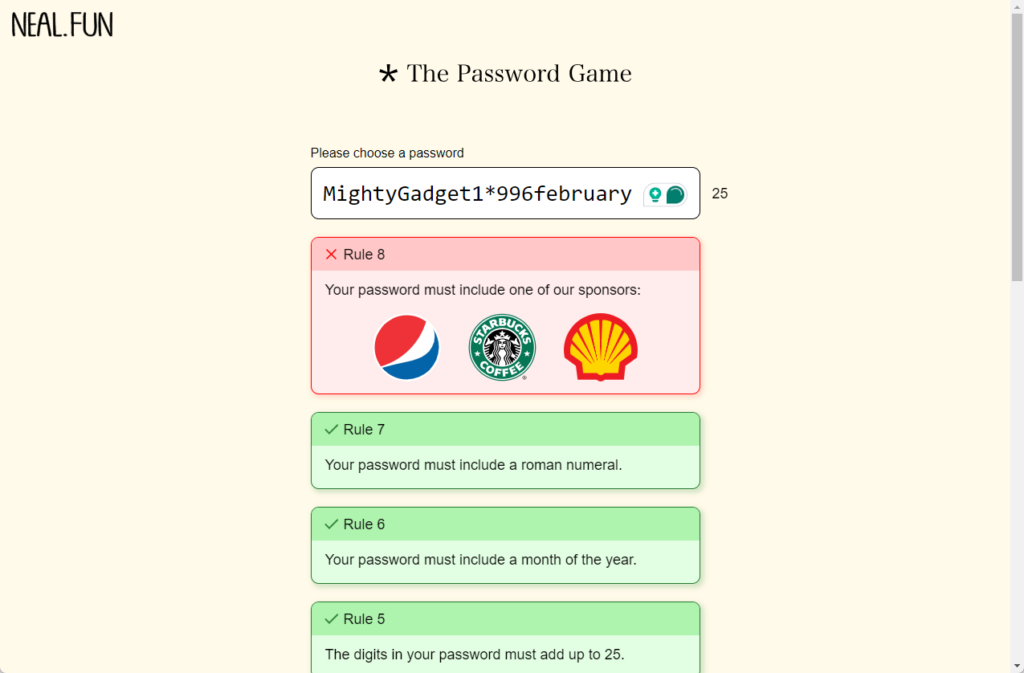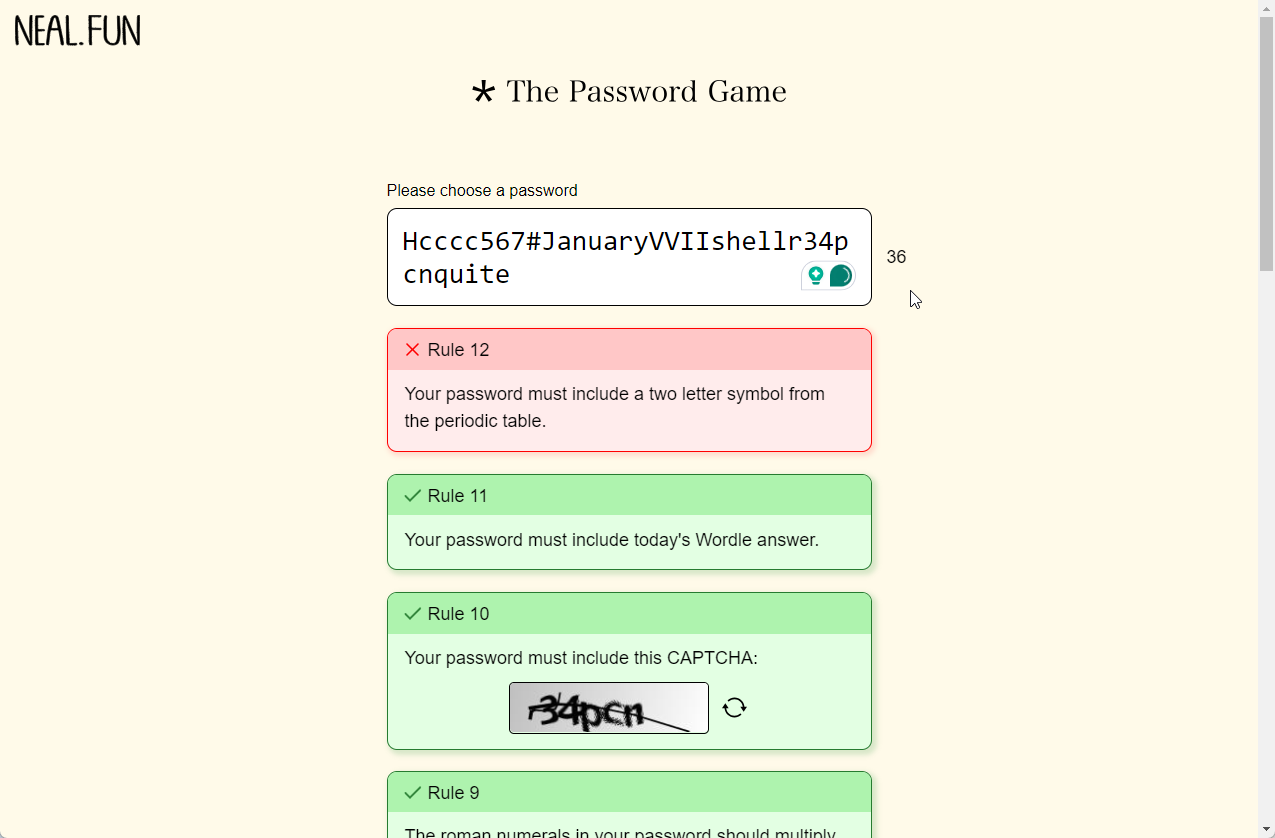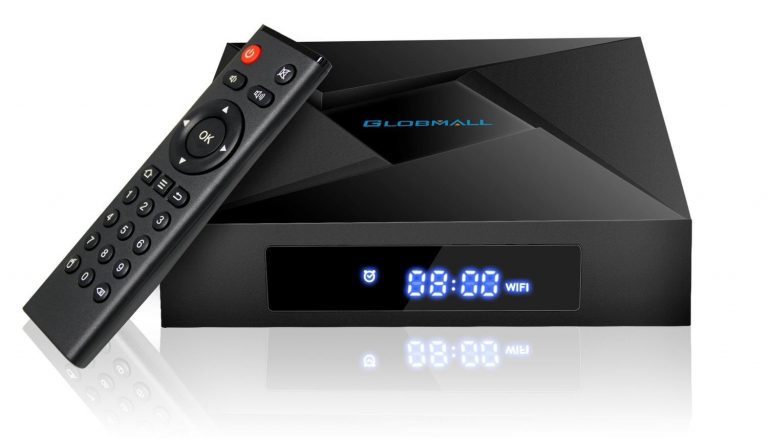Any links to online stores should be assumed to be affiliates. The company or PR agency provides all or most review samples. They have no control over my content, and I provide my honest opinion.
Following on from my previous post, I am giving you an answer for which Roman numerals multiply by 35 for the Password Game. The next rule that you may stumble on is to include a two letter symbol from the periodic table.
It is a bit easier than answer 9, but this guide should make it even easier.

There is a good chance you will have already completed this rule from one of your previous questions. If you chose Pepsi from rule 8, then you will have already done it because of Si (Silicon).
Understanding the Rule
Rule 12 of the Password Game requires you to incorporate a two-letter chemical element symbol from the periodic table into your password. This adds a scientific touch to your password while potentially increasing its complexity.
Two-Letter Element Symbols
There are numerous two-letter element symbols to choose from. Here are some common and easy-to-remember options:
- He (Helium)
- Li (Lithium)
- Be (Beryllium)
- Na (Sodium)
- Mg (Magnesium)
- Al (Aluminum)
- Si (Silicon)
- Cl (Chlorine)
- Fe (Iron)
- Cu (Copper)
- Ag (Silver)
- Au (Gold)
Implementing the Rule
To satisfy this rule, simply include one of these two-letter symbols in your password. Remember that element symbols are case-sensitive: the first letter should be capitalized, and the second letter should be lowercase.
Example
A password segment incorporating this rule might look like:
...He...or
...Cu...Tips for Choosing an Element Symbol
- Memorability: Choose an element you’re familiar with or can easily remember.
- Avoid confusion: Some element symbols might be mistaken for common words (e.g., In for Indium could be read as the word “in”), so choose wisely.
- Combine with other rules: You might be able to use the element symbol to satisfy other rules simultaneously.
Common Mistakes to Avoid
- Using incorrect capitalization: Ensure the first letter is uppercase and the second is lowercase (e.g., “He” not “HE” or “he”).
- Using a single-letter symbol: Elements like O (Oxygen) or N (Nitrogen) won’t satisfy this rule.
- Using a three-letter symbol: Some elements have three-letter symbols (e.g., Uuu for Unununium), which also won’t work for this rule.
Remember, this rule is just one of many in the Password Game. Ensure you’re satisfying all other applicable rules while incorporating this one.
I am James, a UK-based tech enthusiast and the Editor and Owner of Mighty Gadget, which I’ve proudly run since 2007. Passionate about all things technology, my expertise spans from computers and networking to mobile, wearables, and smart home devices.
As a fitness fanatic who loves running and cycling, I also have a keen interest in fitness-related technology, and I take every opportunity to cover this niche on my blog. My diverse interests allow me to bring a unique perspective to tech blogging, merging lifestyle, fitness, and the latest tech trends.
In my academic pursuits, I earned a BSc in Information Systems Design from UCLAN, before advancing my learning with a Master’s Degree in Computing. This advanced study also included Cisco CCNA accreditation, further demonstrating my commitment to understanding and staying ahead of the technology curve.
I’m proud to share that Vuelio has consistently ranked Mighty Gadget as one of the top technology blogs in the UK. With my dedication to technology and drive to share my insights, I aim to continue providing my readers with engaging and informative content.







